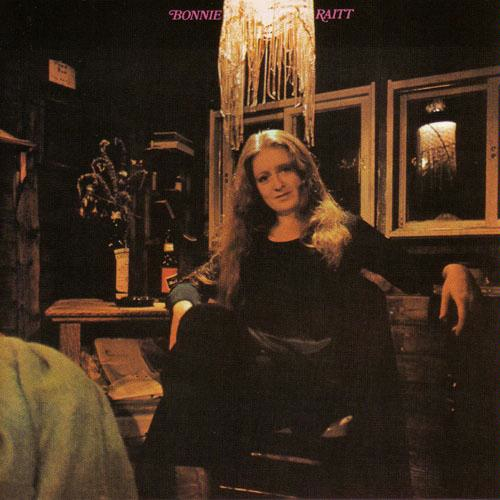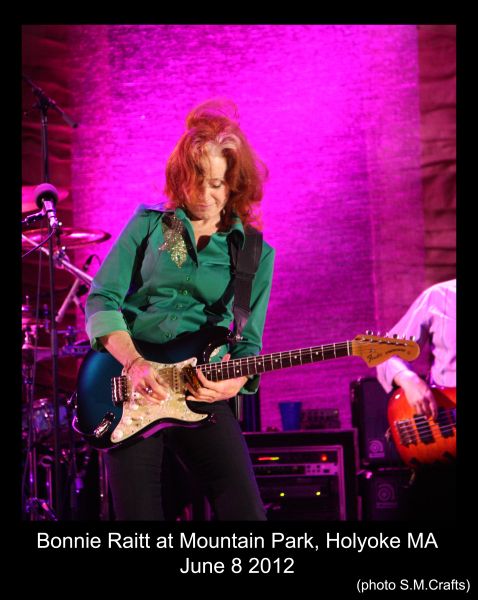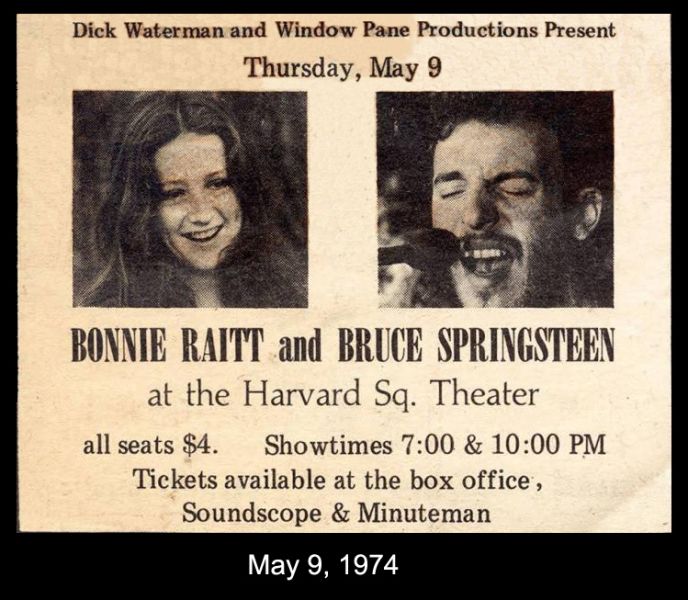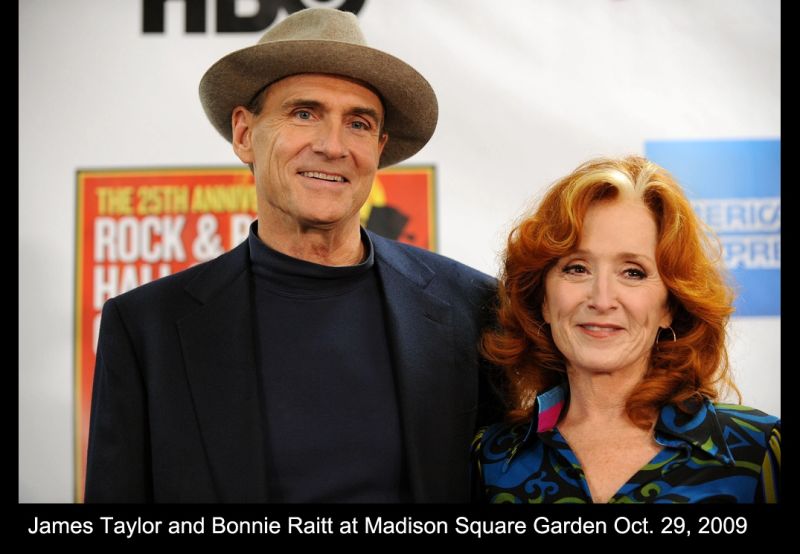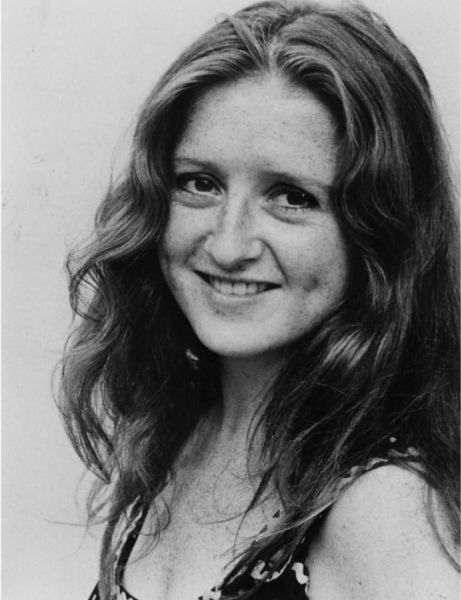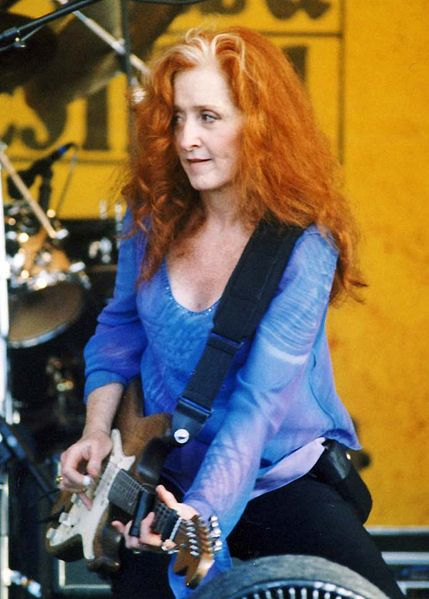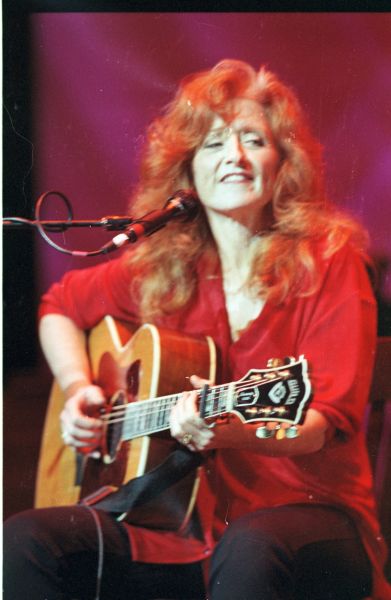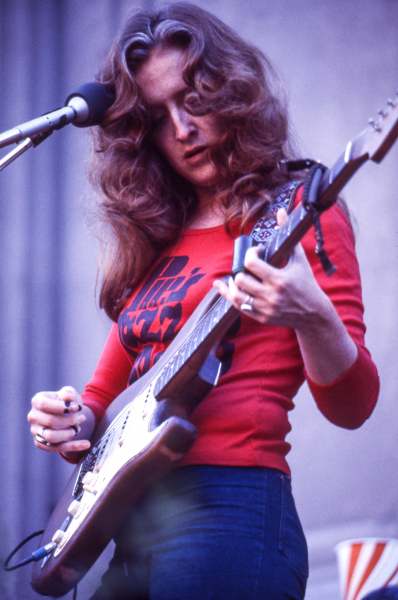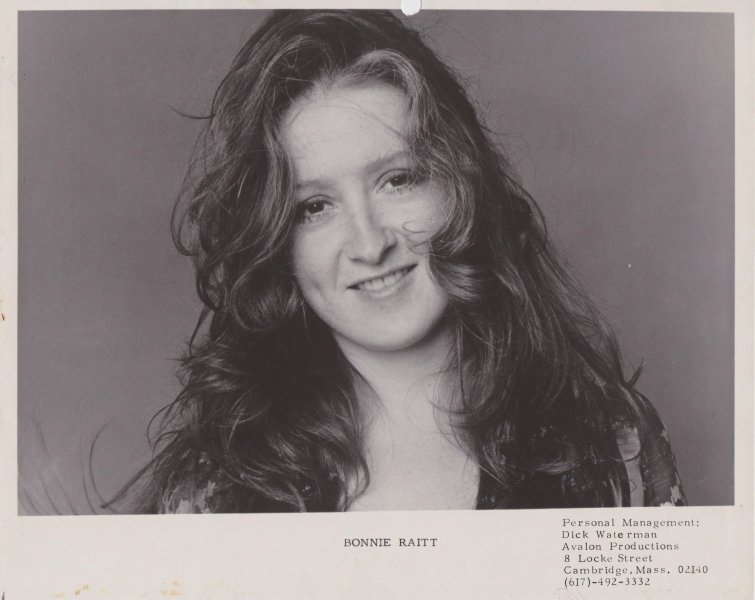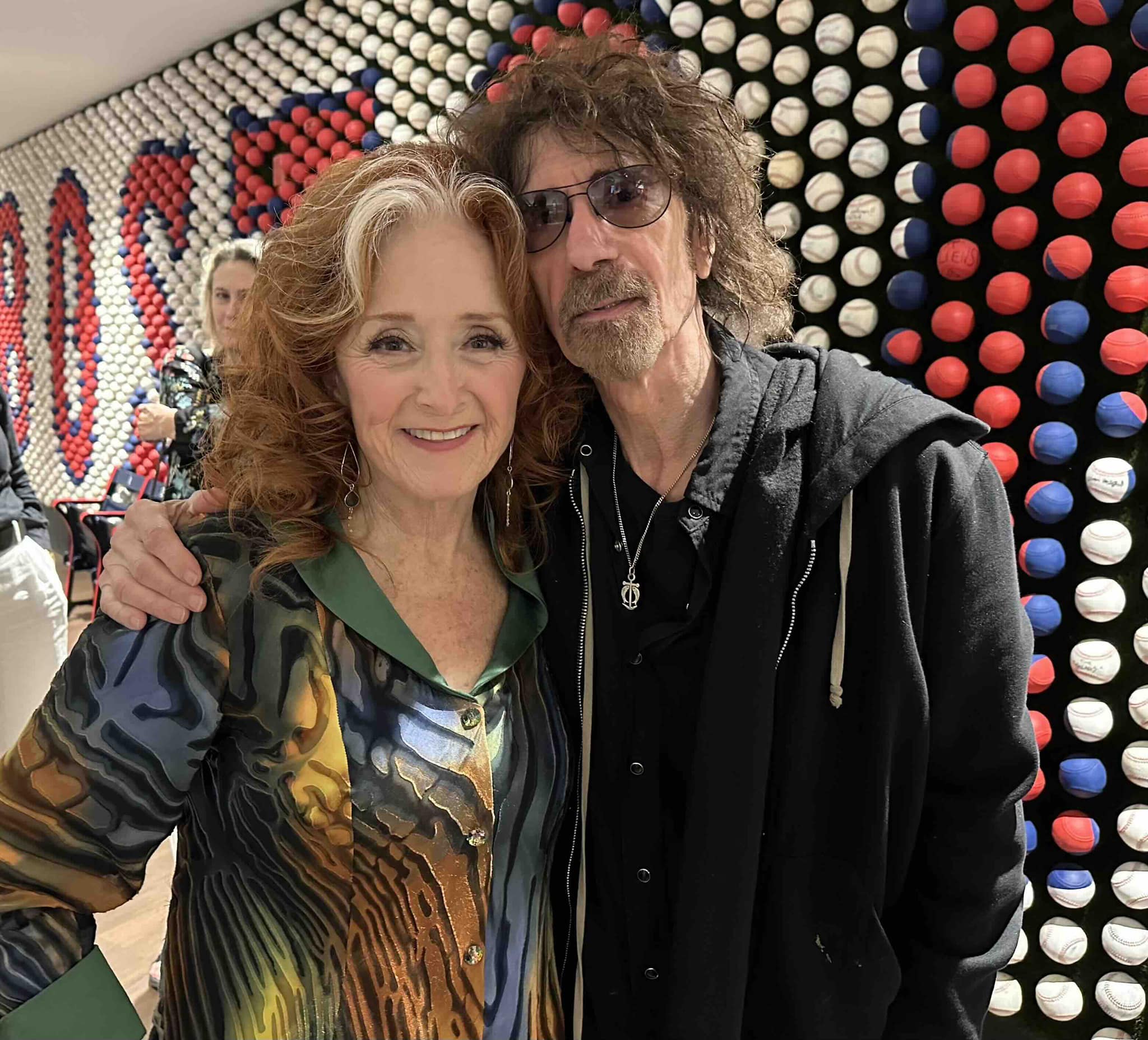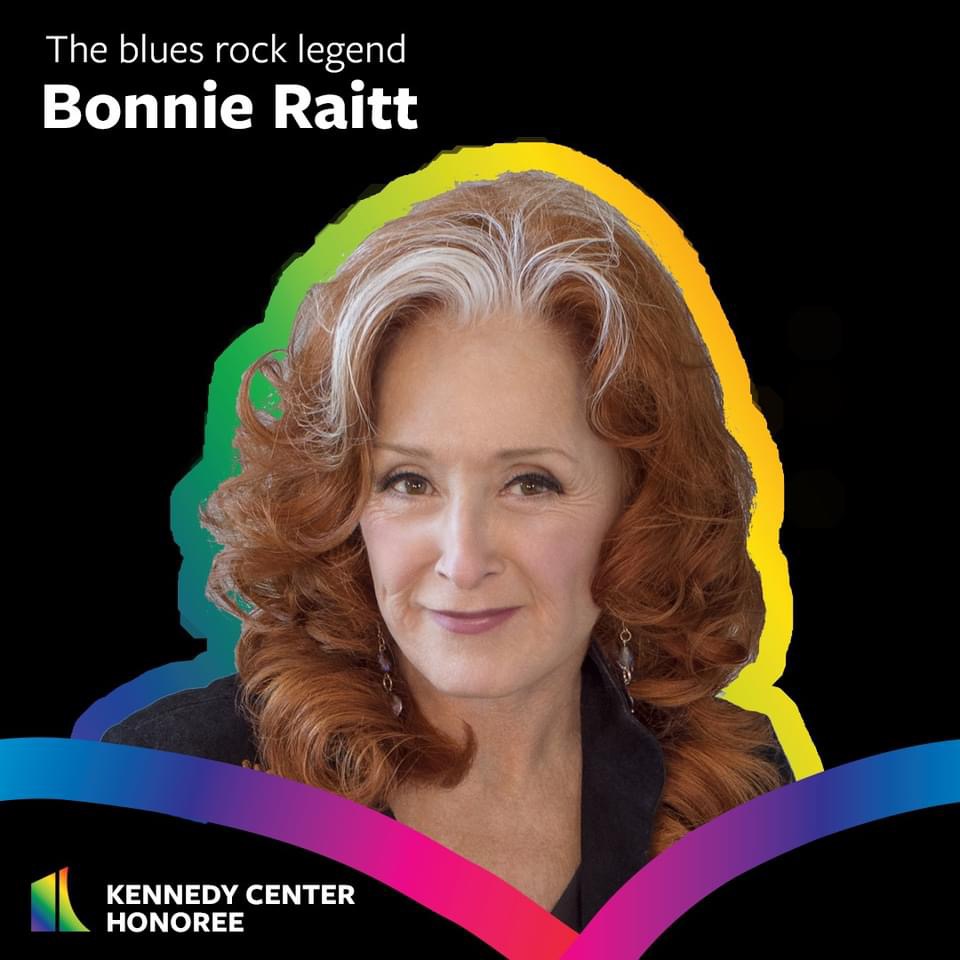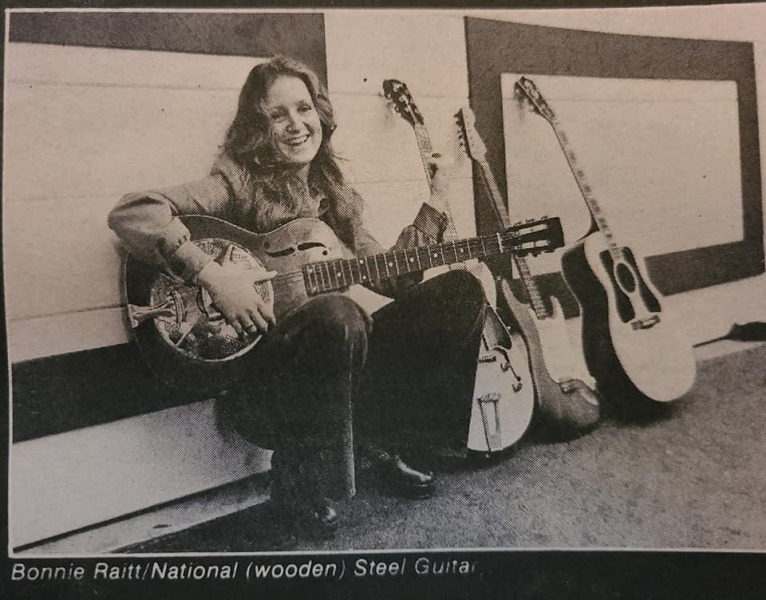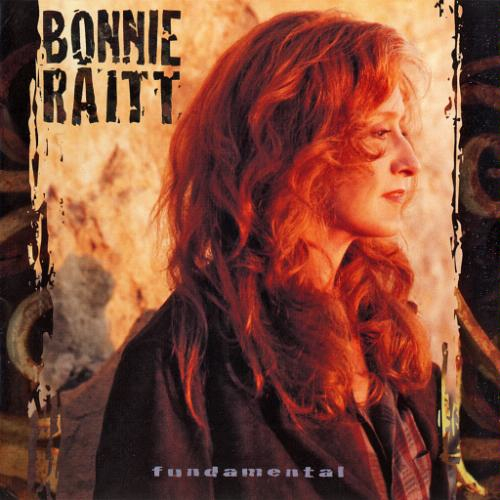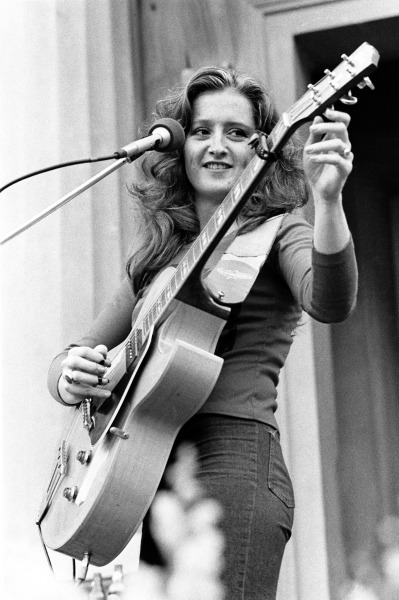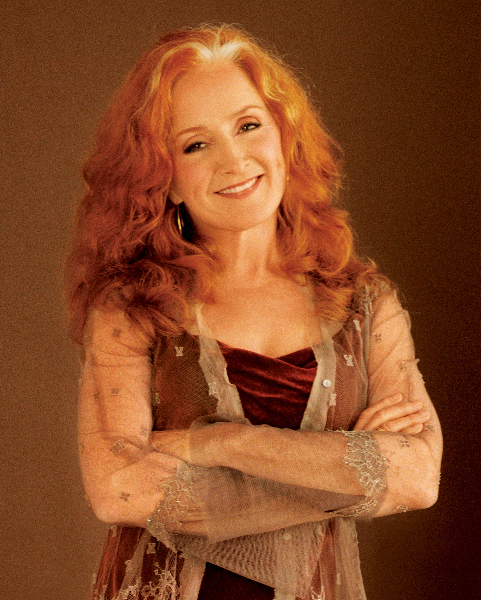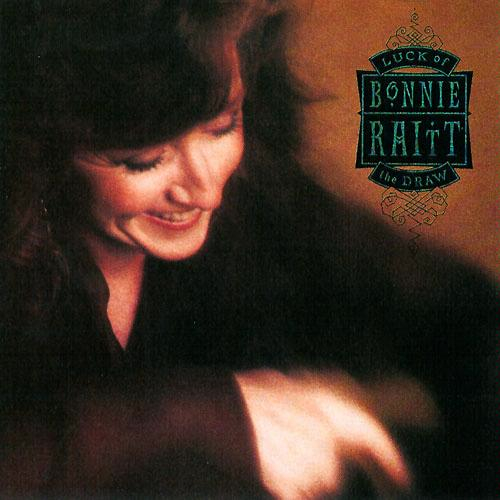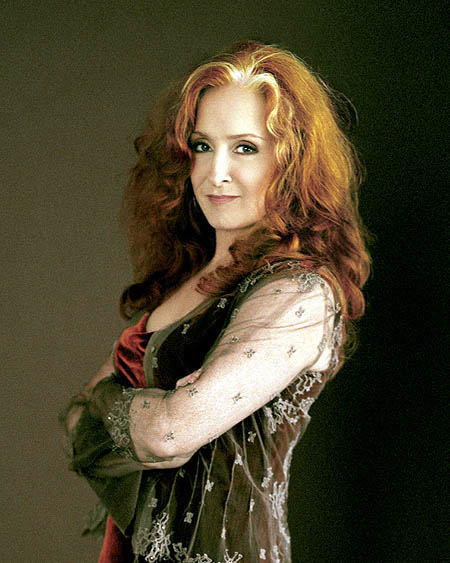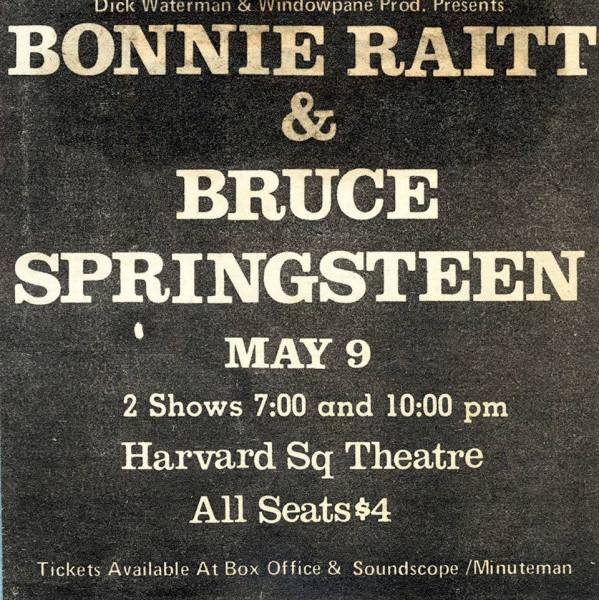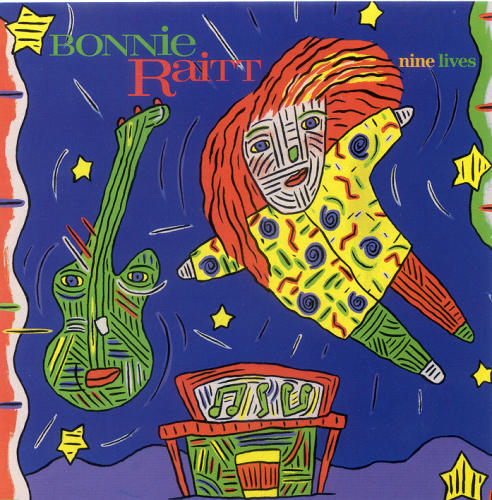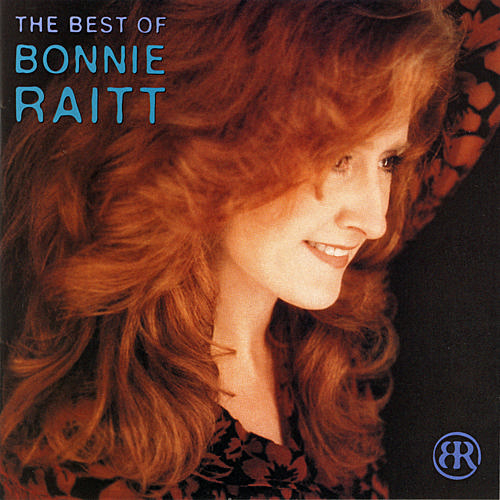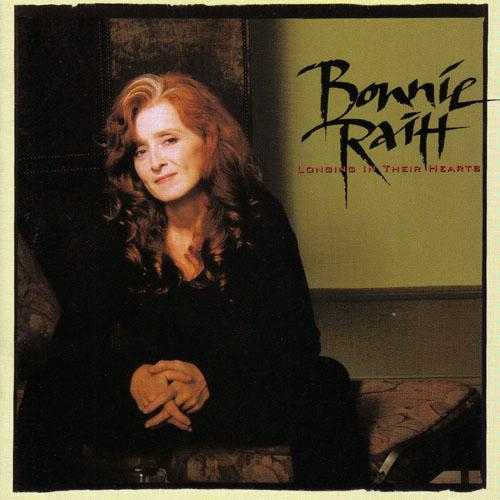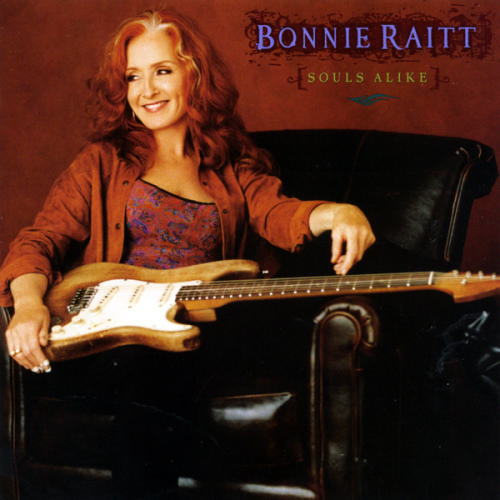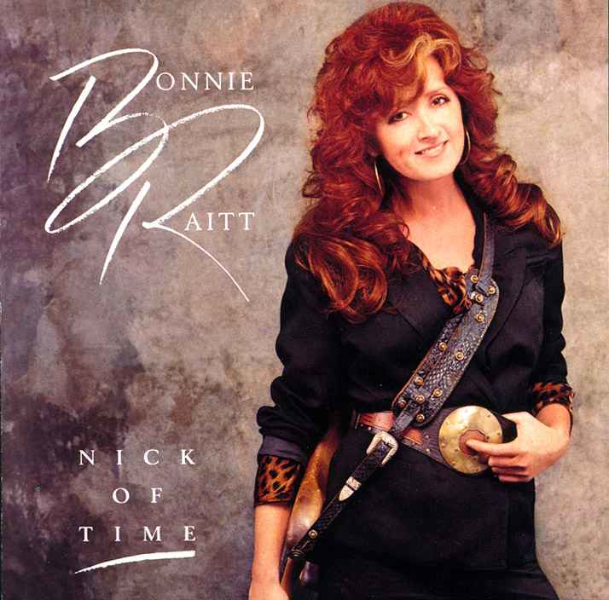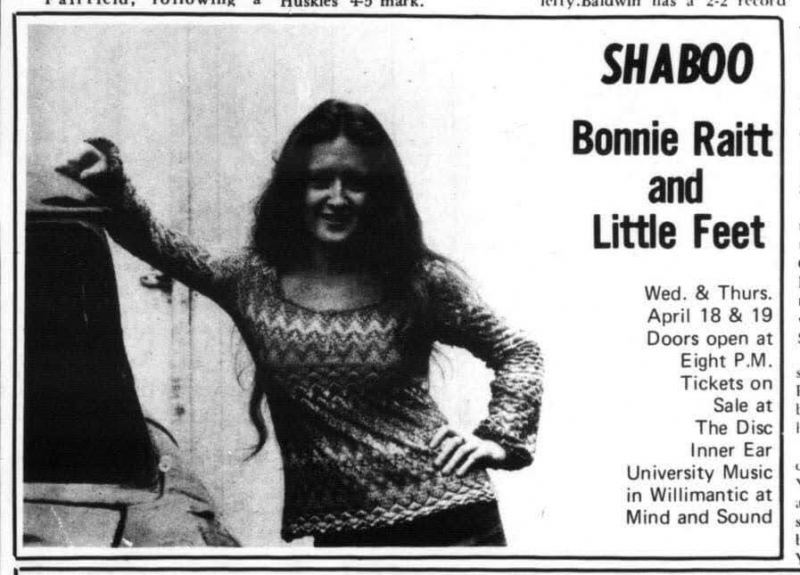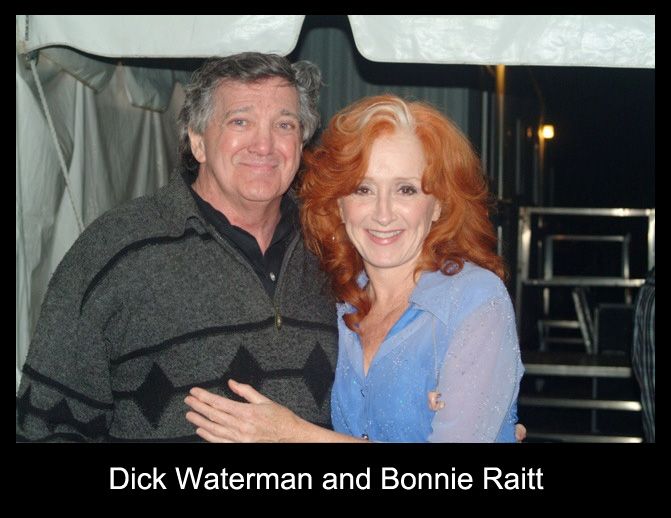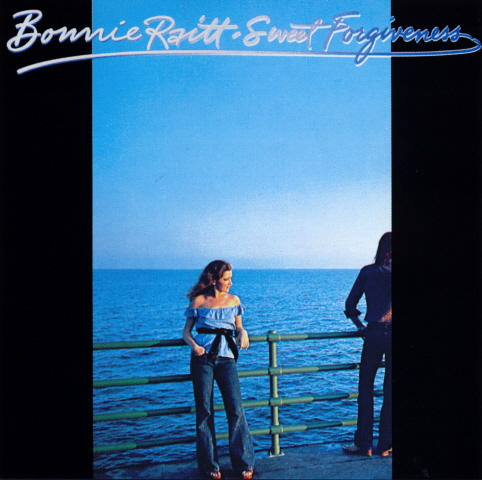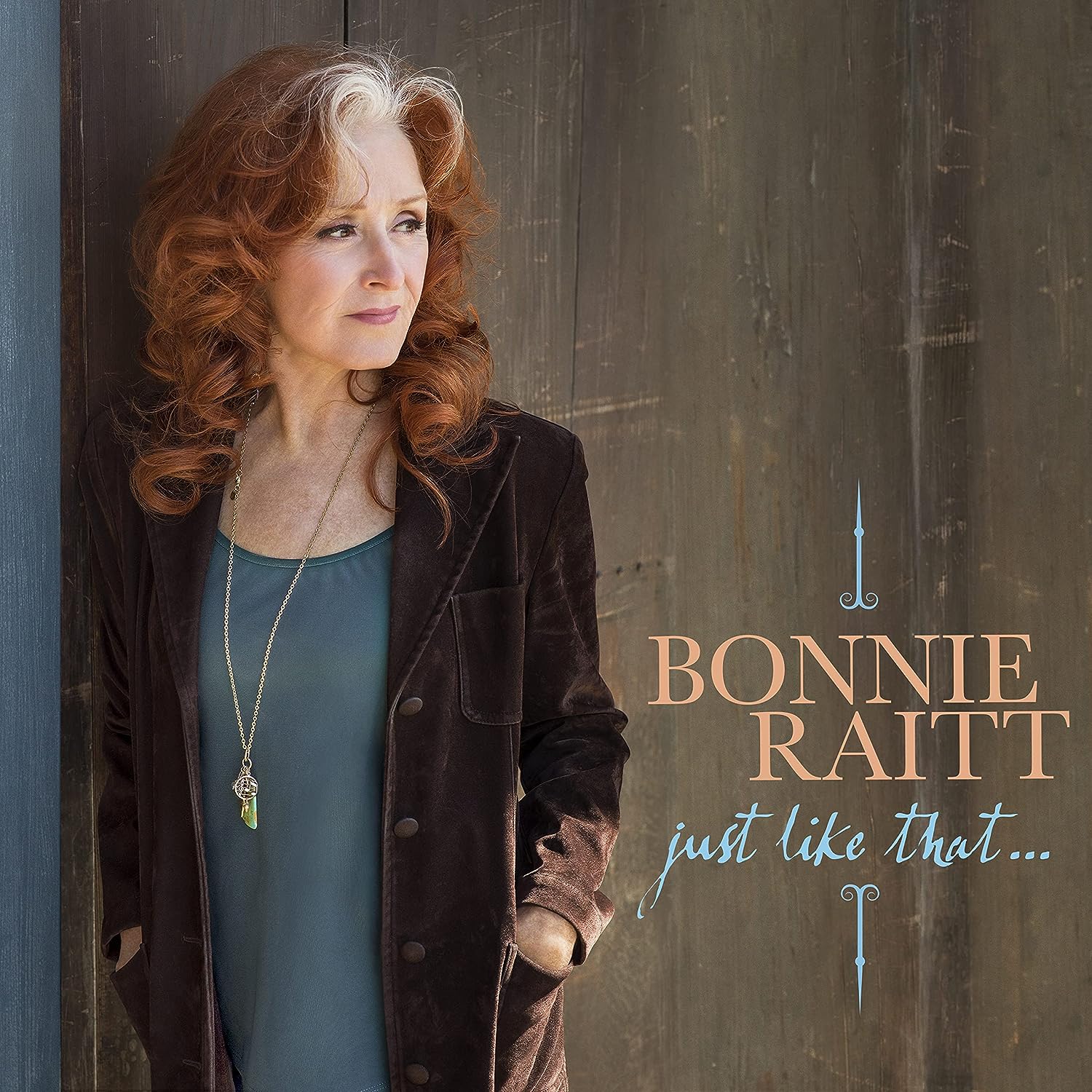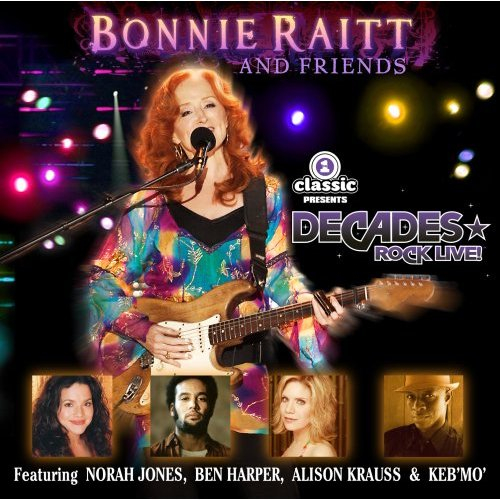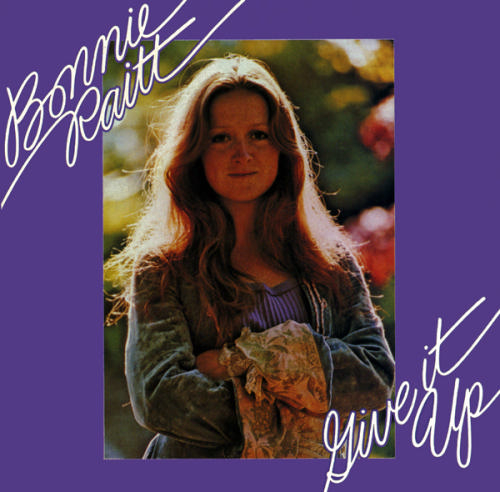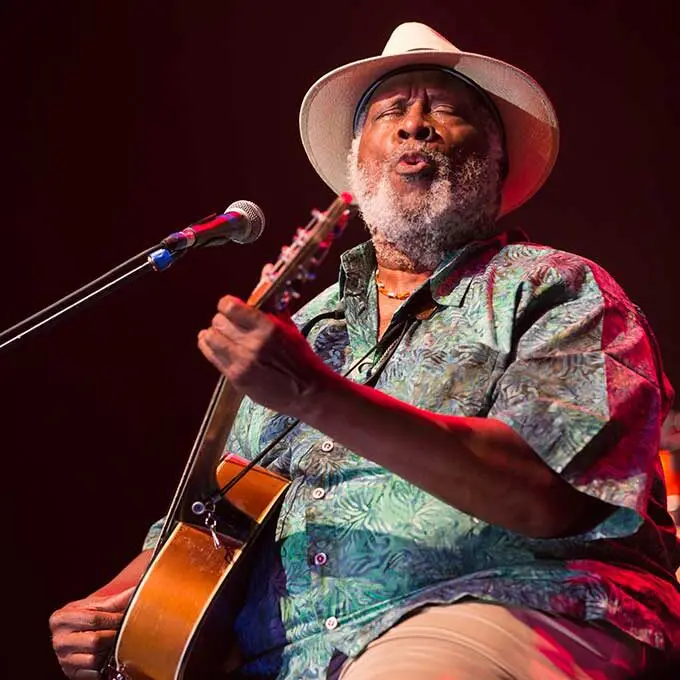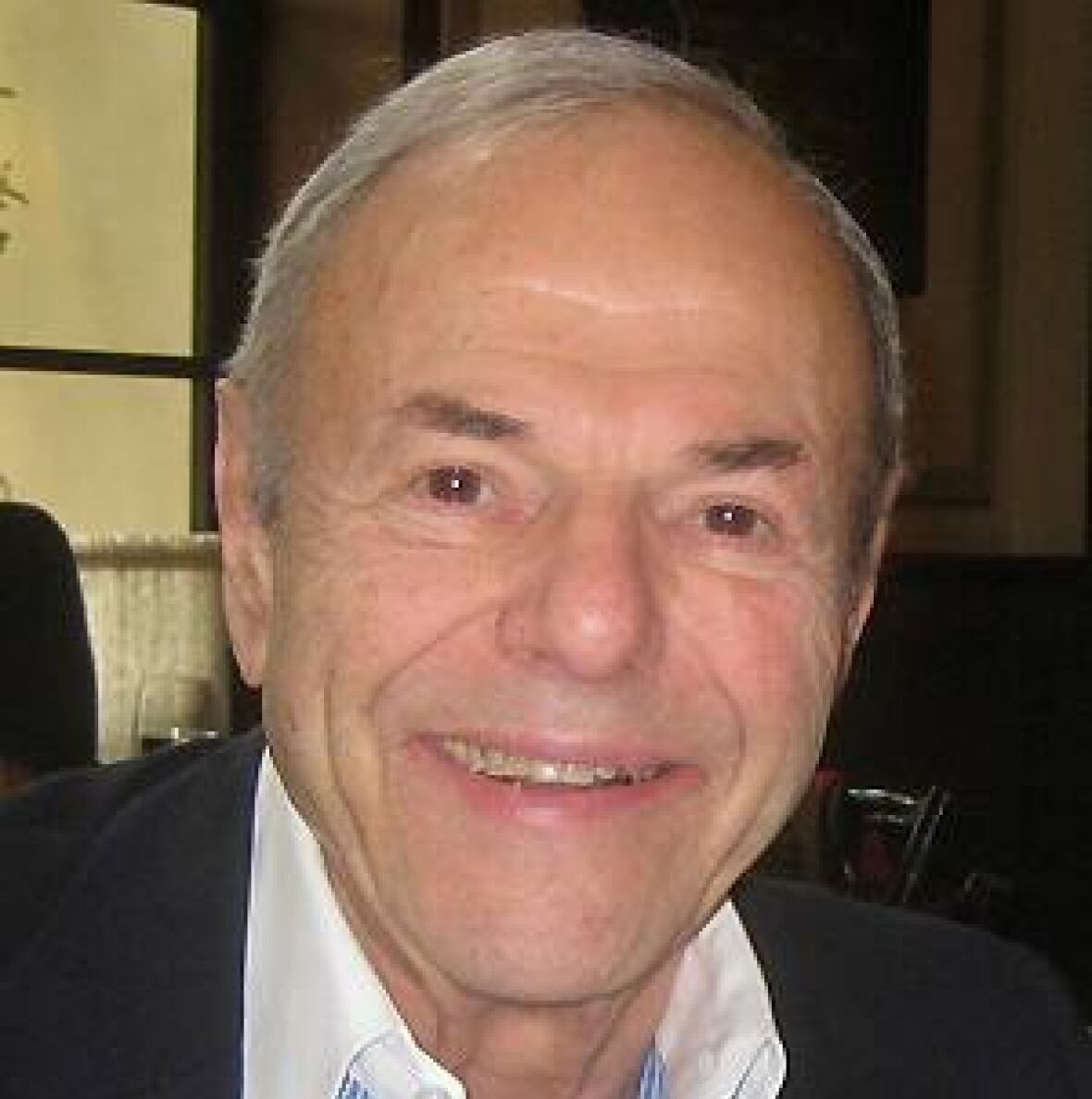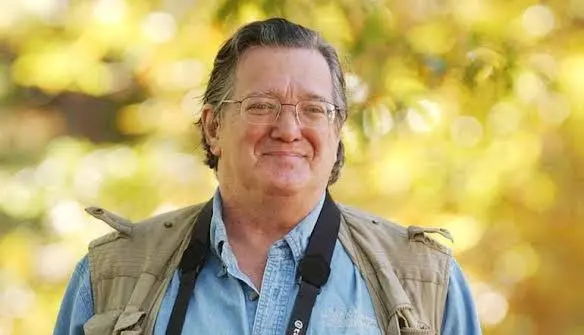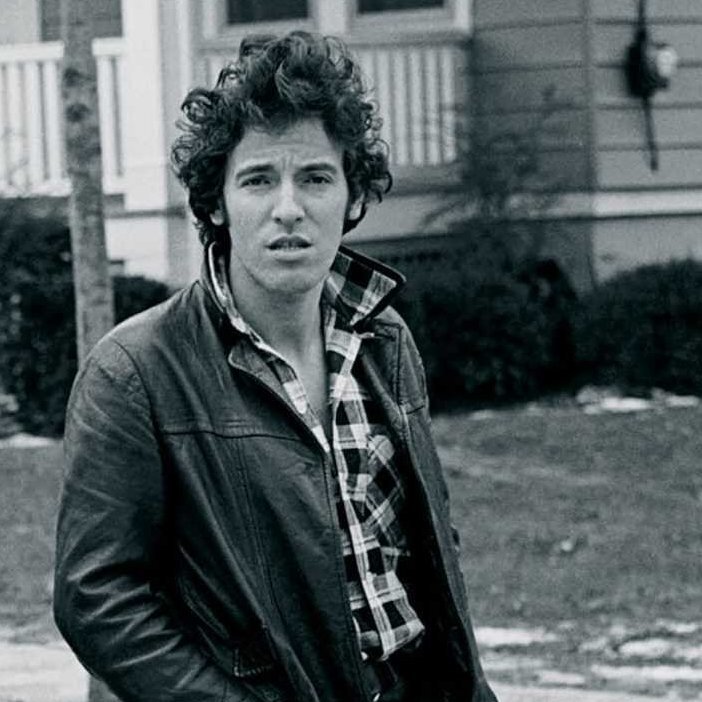Bonnie Raitt
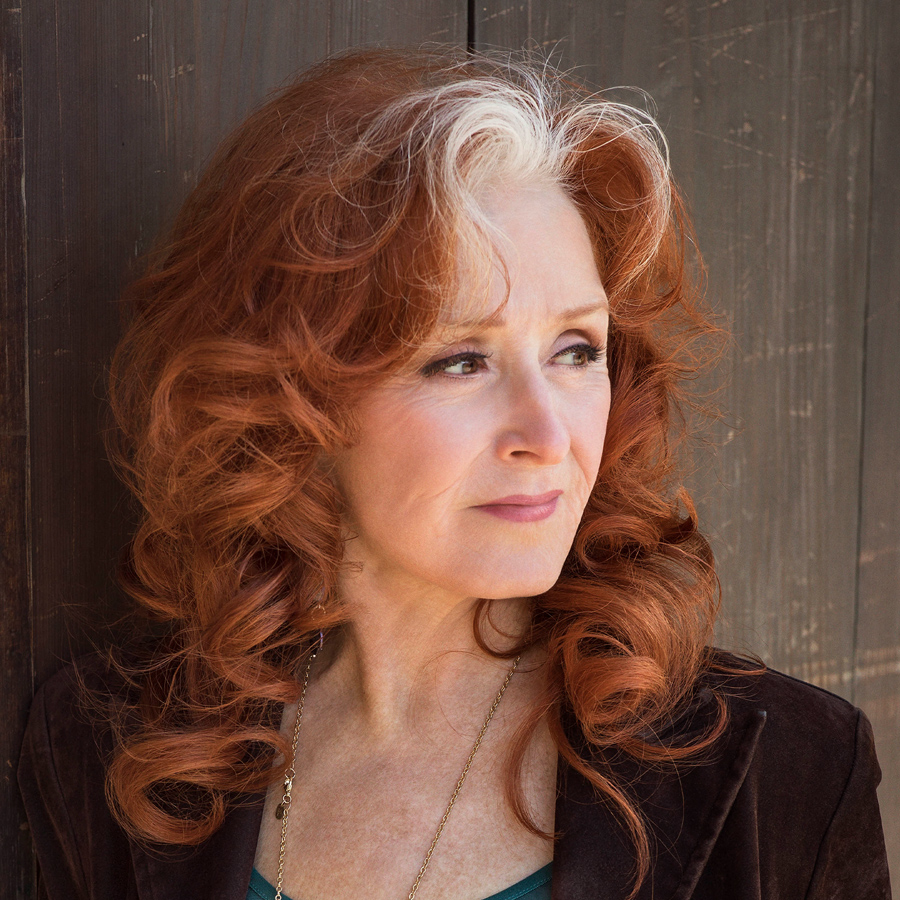
When Bonnie Raitt won her 11th, 12th and 13th Grammys in 2023, it was a testimony to two things above all else: passion and perseverance. Those are the essential elements of her artistry that she’s shown even more consistently and inspiringly over the decades than her obvious talent and mastery of her craft.
And in pressing forward with passion and perseverance – like the blues legends who influenced her always did – Raitt has walked a creative path all her own with a genre-hopping hodgepodge of R&B, roots, rock, soul and New Orleans-style funk while never forgetting the pioneers who paved that path a generation before she was born.
Overview
An American roots-rock icon who recorded her breakthrough album at age 39, Raitt’s passion for music was clear from her early years growing up in Los Angeles and her late teens at Radcliffe College in Cambridge, Massachusetts. As for perseverance, only a handful of other artists have remained even remotely relevant after experiencing her variety of personal and professional ups and downs, let alone thrive like 73-year-old Raitt, who won the 2023 Song of the Year Grammy over four nominees less than half her age – Harry Styles (29), Taylor Swift (33), Lizzo (34) and Adele (34) – and another one more than 30 years her junior, Beyoncé (41).
After 18 studio albums, three live LPs and a road-warrior schedule that would exhaust even the most travel-hungry among us, Raitt has received 30 Grammy nominations in total despite having said that she’s never sought any commercial success. And staying true to her vision of music as art, not as a commodity, has allowed her to record some of the late 20th and early 21st centuries’ most heartfelt albums, become a staple on the charts and draw crowds like few others – particularly septuagenarians.
Early years, Influences, Early performances
Bonnie Lynn Raitt was born November 8, 1949 in Burbank, California, the daughter of Marge Goddard (née Haydock), a pianist, and John Raitt, a stage/film actor and singer. A self-described “tomboy” whose family respected the arts, followed Quaker traditions and was committed to social activism, Raitt began her six-stringed journey at age eight when one of her Christmas gifts was a Stella guitar, the same brand played by Robert Johnson, Lead Belly, Charlie Patton and Skip James. She never took lessons.
Raitt has said she was strongly influenced by the folk revival of the 1950s, particularly the spirit of the beatnik movement. From ages eight to 15, she spent part of her summers at Camp Regis Applejack in the Adirondack Mountains, where she played songs for other campers, and at age 15 her interest in the blues and slide guitar exploded after she heard the LP Blues at Newport 1963 (Vanguard, 1964).
Move to Cambridge, Dick Waterman
In 1967, after graduating from Oakwood Friends School (a private boarding school in Poughkeepsie, New York), 17-year-old Raitt enrolled at Radcliffe College, majoring in social relations and African studies. For the next two years, she played at open-mic nights and other events in Cambridge and Boston and was a regular audience member at the area’s blues clubs, and in 1969 she became the lead singer of the Revolutionary Music Collective, a group that performed in Cambridge during the nationwide student strikes of May 1970.
By far the most significant event of Raitt’s Cambridge years musically – the one that essentially launched her entire career – was when she met promoter/manager Dick Waterman, a Plymouth, Massachusetts, native who was as fundamental to the area’s blues scene as Folklore Productions’ Manny Greenhill was to the folk one. Among the artists Waterman managed were Son House, Junior Wells, Buddy Guy, J.B. Hutto, Sam “Lightnin’” Hopkins and Arthur “Big Boy” Crudup and he identified Raitt as a rare talent the moment he saw her perform in late 1969, becoming her manager from then until 1985.
Move to Philadelphia, The Rolling Stones, Warner Bros. signing
Shortly after meeting Waterman, Raitt dropped out of Radcliffe (halfway through her junior year) and in mid-1970 she moved to Philadelphia, where Waterman had his main office and she started opening for his laundry list of blues greats there, in New York and in other cities.
In August 1970, Waterman landed 20-year old Raitt the biggest gig any budding blues artist could possibly fathom, a spot opening for The Rolling Stones on their 18-city, September/October European tour, and in 1971 he was instrumental in landing her a deal with Warner Bros.
Debut album, Give It Up, Takin’ My Time, Streetlights
In late 1971, that label released her self-titled debut album, which includes two originals and saw middling commercial success but positive reviews that praised her interpretations of others’ songs and her bottleneck-guitar prowess. In 1972, Warner Bros. issued her second LP, Give It Up, which had three originals and also saw positive press despite limited sales, followed by Takin’ My Time (1973) and Streetlights (1974), both of which included covers only and were – yet again – strong critically but disappointing commercially.
Home Plate, Rolling Stone cover, Sweet Forgiveness, Bidding war
In 1975, Raitt recorded Home Plate, a 10-track collection of covers only. Though sales were bolstered by her appearance on the cover of Rolling Stone under the heading “Bonnie Raitt: Daughter of the Blues,” reviews were more mixed than before.
In 1977, Raitt had her first significant commercial success with the mainstream-sounding Sweet Forgiveness, which hit #25 in the Billboard Pop Albums chart while its single “Runaway” (a cover of Del Shannon’s #1 song from 1961) reached #57. Despite being lambasted by critics, the LP sparked a bidding war between Warner Bros. and arch rival Columbia – James Taylor having left the former for the latter in late 1976 – and, with Waterman’s help, Raitt renegotiated her contract to match Columbia’s juicy offer.
The Glow, First Grammy nomination, No Nukes
In September 1979, her commercial success continued with The Glow (#30), which won Raitt her first Grammy nomination (Best Female Rock Vocal Performance), though she lost out to Donna Summer. Also in 1979, she appeared on the album No Nukes with Bruce Springsteen, The Doobie Brothers and Carly Simon, among others.
Raitt returned to New England frequently throughout the ‘70s, playing at universities, the Orpheum Theatre, Music Inn, The Shaboo Inn, Music Hall, Tanglewood and Boston Common.
Green Light, Tongue And Groove, Newport Folk Festival, Nine Lives
In 1982, Raitt recorded another modest commercial hit, Green Light (#38), which won her a second Grammy nomination (Best Female Rock Vocal Performance), which she lost to Pat Benatar. In 1983, after she finished recording all of the tracks for her ninth album, Tongue and Groove, Warner Bros. dropped her from its roster and put the tapes on ice, leaving Raitt without a contract and playing mostly small venues including Hot Tin Roof, Hampton Beach Club Casino and Toad’s Place.
In 1985, the year Raitt debuted at the Newport Folk Festival, Warner Bros. decided to release Tongue and Groove as Nine Lives, but it stalled at #115 upon release in 1986 and was her worst-selling LP since her 1971 debut. Adding insult to injury, Raitt’s third Grammy nomination (Best Female Rock Vocal Performance) didn’t materialize, with Tina Turner winning the award. Through 1986 and much of 1987, with little hope of a new record deal and self-medicating in a big way with booze and other drugs, Raitt kept busy by appearing at Farm Aid and other benefits.
Capitol signing, Nick Of Time
In late 1988, by which time she’d been clean and sober for over a year, Raitt signed with Capitol Records, brought on board by the label’s Vice Chairman and CEO Joe Smith, a Chelsea, Massachusetts, native who was president of Warner Bros. during Raitt’s first four years there – not when the label dropped her – and was as pivotal to her later success as fellow Bostonian Dick Waterman had been to her earlier one. The immediate result was the album that made Raitt a household name, Nick of Time, released in March 1989, which sold five million copies in the US alone, won three Grammys (including Album of the Year) and soared to #1 in the Billboard 200. Raitt won a fourth Grammy that year for her duet with John Lee Hooker on his LP The Healer.
1990s: Albums, “SRV Shuffle,” Grammys
Through the 1990s, Raitt was a chart-topping, globe-trotting force of nature, recording four enormously successful albums for Capitol, starting with Luck of the Draw (1991, #2), which won three Grammys, followed by Longing in Their Hearts (1994, #1), which won the Best Pop Album Grammy, Road Tested (1995, #44, her first live LP) and Fundamental (1998, #17). In 1996 she won a Grammy for her instrumental “SRV Shuffle,” released on A Tribute to Stevie Ray Vaughn
Early 2000s: albums, other collaborations
Since 2002, Raitt has recorded three albums for Capitol – Silver Lining (2002, #13), Souls Alike (2005, #19) and Bonnie Raitt and Friends (2006) – and in 2004 she appeared on Toots and the Maytals’ LP True Love and Ray Charles’ final album, Genius Loves Company, along with B.B. King, Van Morrison and others. In 2009, Raitt and Taj Mahal toured together on the “Bon Taj Roulet” R&B-style revue.
Redwing Records, Slipstream, Dig In Deep
In 2012, Raitt established Redwing Records and recorded Slipstream, which won her a 10th Grammy (Best Americana Album) and reached #6 in the Billboard 200. In 2016, Redwing released Dig in Deep, which hit #11 and included five Raitt originals, the most since 1998’s Fundamental. In August 2017, she played at Fenway Park on a double bill with James Taylor, who told The Boston Globe Raitt was his “sister by another mother” since the two are “definitely in the same musical genome.”
Just Like That…, Awards, Accolades
In January 2022, Raitt received a Lifetime Achievement Award at the Grammys and in April that year she released her 18th studio LP, Just Like That…, which shot to #1 in the Billboard Top Blues Albums and Billboard Folk Albums charts. In February 2023, she won three Grammys for songs on the LP: Song of the Year (“Just Like That”), Best American Roots Song (“Just Like That”) and Best Americana Performance (“Made Up Mind”). After noting in her acceptance speech that “Just Like That” was inspired by singer-songwriter John Prine, who died in 2020, Raitt said, “I don’t write a lot of songs but I’m so proud that you appreciate this one.”
In addition to 13 Grammys, Raitt has received a host of other awards and accolades over the decades, including an honorary doctorate from Berklee College of Music in 1992 and a Harvard Arts Medal for “achievement in the arts by a Harvard or Radcliffe alumnus” in 1997. In 2000, she was inducted into the Rock & Roll Hall of Fame and in 2002 she received a star on the Hollywood Walk of Fame. In 2012, the Americana Music Association gave her its Lifetime Achievement Award and in December 2024 she was presented with a Kennedy Center Honor for lifetime achievement.
“Stay true to your art”
Speaking to The Guardian in 2022, Raitt talked about the passion and perseverance that have been foundational to her 50-plus year career, highlighting the distinctly “art-over-commerce” approach that’s defined her professional life. “I’m just one more kid who learned how to play the blues from being a fan,” she said. “My game plan was just to follow my blues and jazz exemplars. Stay true to your art, do the best shows you can, keep going, don’t worry about commercial success, and when you’re 70 years old people will still want to come and see you.”
(by D.S. Monahan)
- Wikipedia
- Official Home Page
- All Music
- NY Times Interview
- Article by Steve Morse / Boston Globe
- Bonnie Raitt Interview with Terry Gross - NPR Fresh Air
- ‘Do something with your actions. Don’t just write a cheque’: Bonnie Raitt on activism, making men cry and 38 years of sobriety - The Guardian
- Bonnie Raitt Faces Mortality With Compassion and Hope - The New York Times

